Project Overview
The Dutch Heart Foundation wanted to launch a public awareness campaign to reduce hesitation among bystanders during emergencies like heart attacks and strokes. We collaborated to create a five-minute interactive crash course that uses real-life scenarios and gamified feedback to train the public in recognizing emergency signals and calling 112. The course empowers bystanders to act decisively, potentially saving lives.
Want to boost public awareness around an important topic?
The challenge
When seconds matter, doubts can cost lives
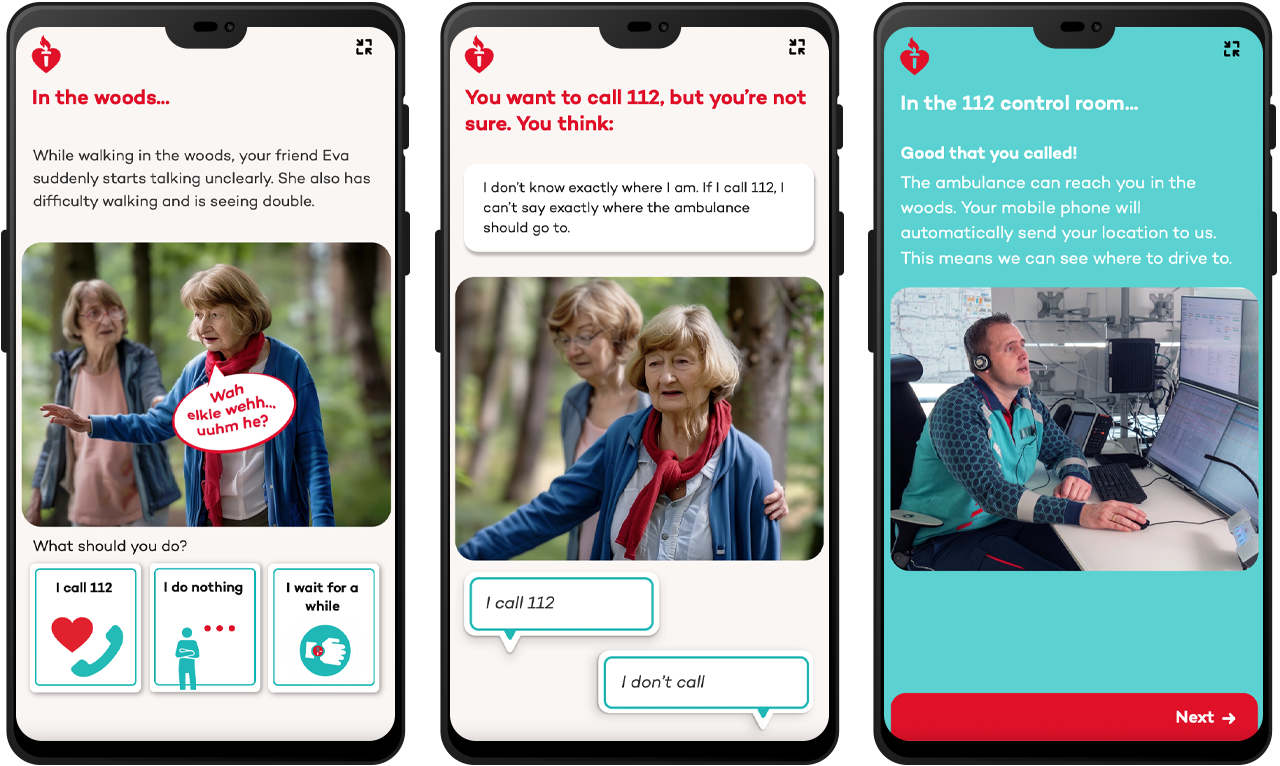
The solution
Creating confidence through crisis simulations
To encourage engagement, we incorporated gamified elements such as earning 'hearts' for correct answers and providing opportunities for users to improve their scores by retaking the course. This replayability not only reinforced learning but also made the experience enjoyable and memorable.
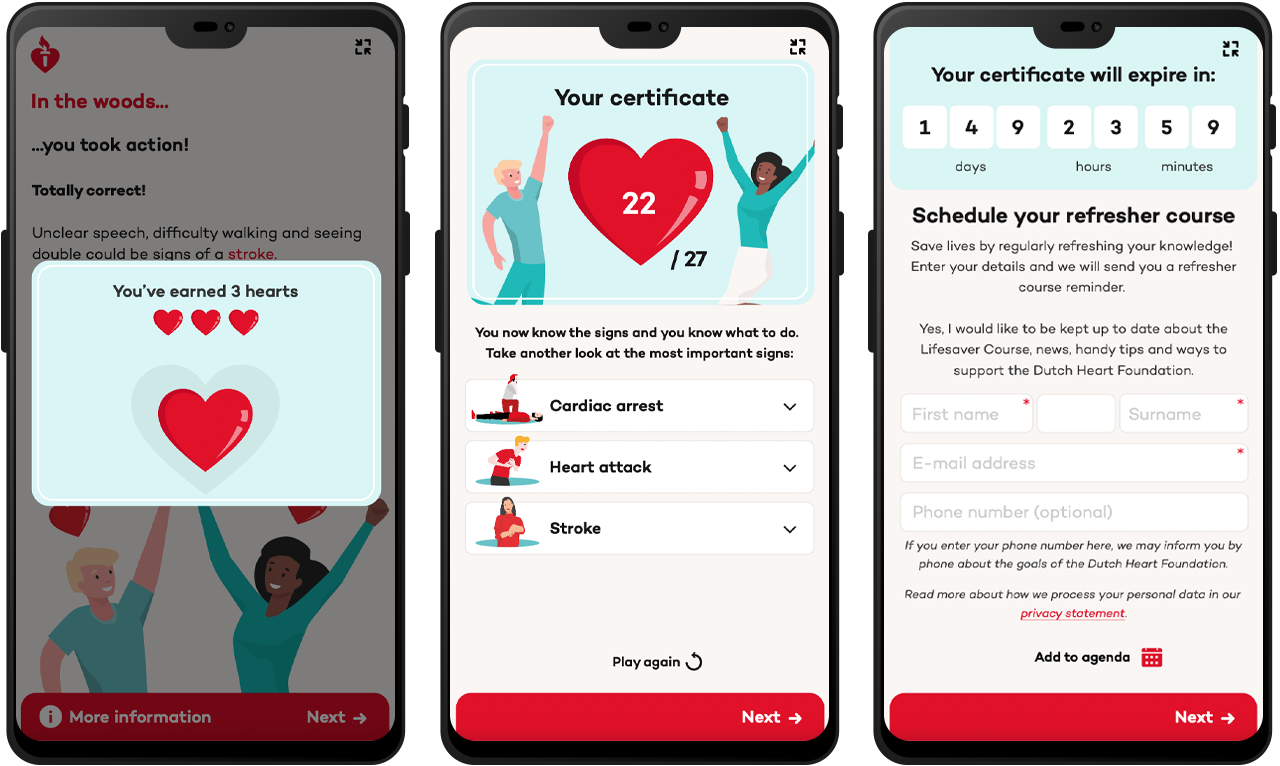
Overcoming the mental blocks that prevent action
Curious and want to give it a try yourself? Visit the Dutch Heart Foundation website!
The results
Engaging thousands to become lifesavers
Following a successful initial launch and campaign, the Dutch Heart Foundation expanded the course to include additional scenarios and gamified elements based on user feedback and data, further enhancing engagement.
To date, 343,000 people have voluntarily completed the crash course, with an impressive 75% completion rate.
On average, participants spend seven minutes on the course, demonstrating the public’s willingness to engage beyond the initial five-minute design. This sustained interaction highlights the effectiveness of the gamified and scenario-based learning approach.
Where we are now
Expanding access to strengthen global outbreak readiness
Additionally, the app now offers pathways for users to become donors or long-term supporters of the Dutch Heart Foundation, strengthening the connection between public health engagement and sustainable fundraising.
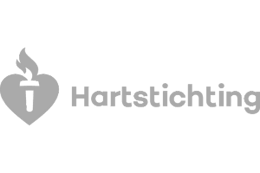
Services we provided:
- UX/UI development
- Digital learning design
- Media asset creation
Inspired by this life-saving project? Let's build a serious game that makes a difference for your organization.
Other Case Studies
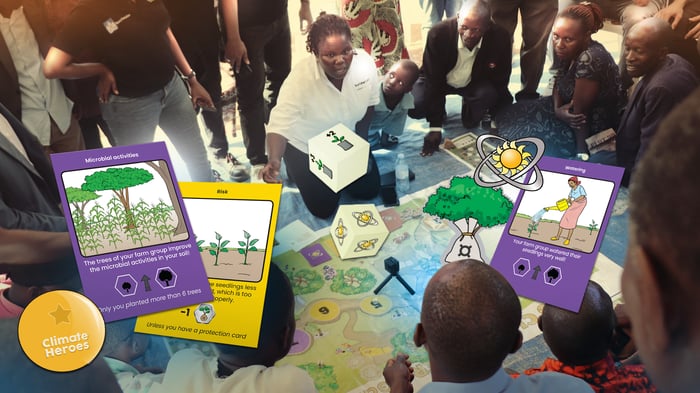
Case study
Turning farmers into Climate Heroes : how Solidaridad empowered them through gamified learning
Full Case Study
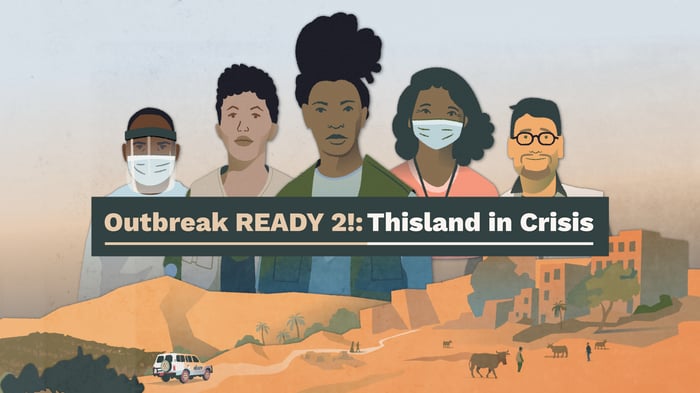
Case study
Training for the unthinkable: how READY prepares NGOs for outbreaks with a innovative simulation
Full Case Study
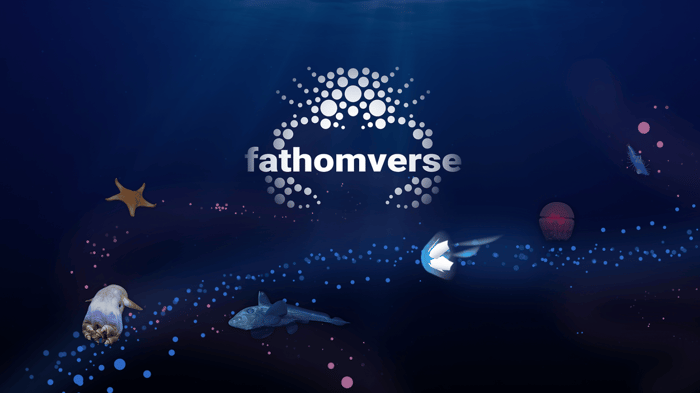
Case study
Training AI through play: how MBARI turned gamers into citizen scientists to uncover the ocean's secrets
Full Case Study
